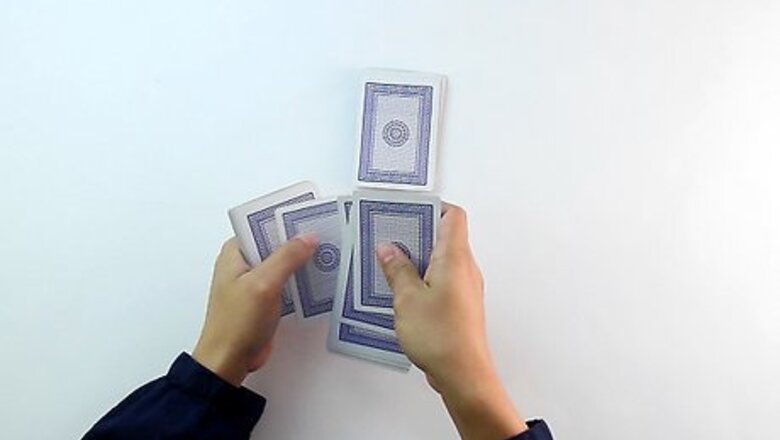
views
Dealing the Cards
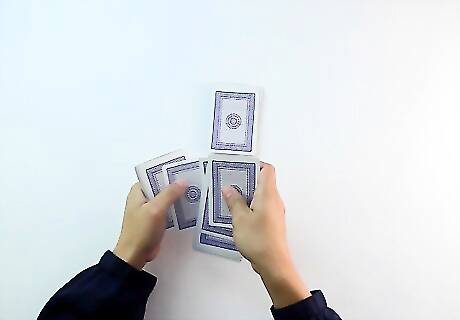
Shuffle and deal player cards. Shuffle a standard 52-card deck. Deal 20 cards to yourself and 20 to the other player. Keep all cards face-down for the time being. Use a hard, sturdy surface like a table or wood floor for ideal game play.
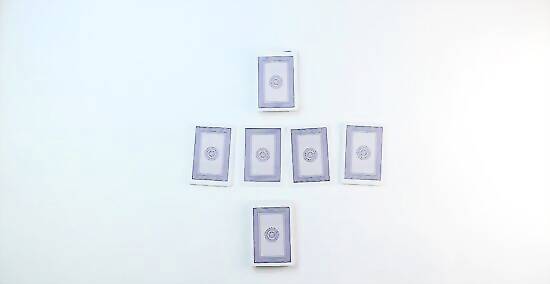
Make 4 piles in the middle. Deal the remaining cards into 4 piles in one row at the center of the table between you and your opponent. Place cards, left to right, as follows: Deal 5 cards to the far left pile. This is one of the reserve piles for game play. Deal 1 card to the middle-left pile. This is one of the active piles during game play. Deal 1 card to the middle-right pile. This is one of the active piles during game play. Deal 5 cards to the far right pile. This is one of the reserve piles for game play.
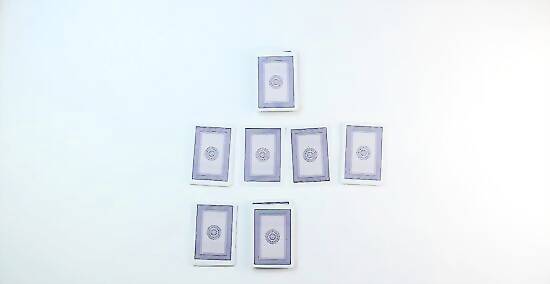
Separate the top 5 player cards. Have each player deal 5 cards off of their pile of 20 cards. The new pile of 5 cards becomes the hand that is played from; the remaining 15 become a draw pile for that player. Keep the 5 cards of your playing hand face-down until game play begins. For the rest of the game, you should always have 5 cards—and only 5 cards—in your playing hand by drawing from your draw pile.
Playing the Game
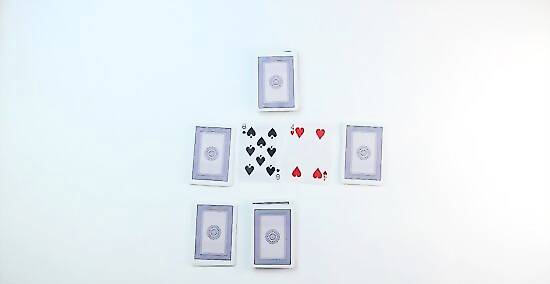
Flip over the 2 middle cards. Have your opponent flip over one of the two middle piles of 1 card in the center of the table, while you flip over the other one. Count down from 3 at the same time as your opponent so that you flip over the cards at the same time.
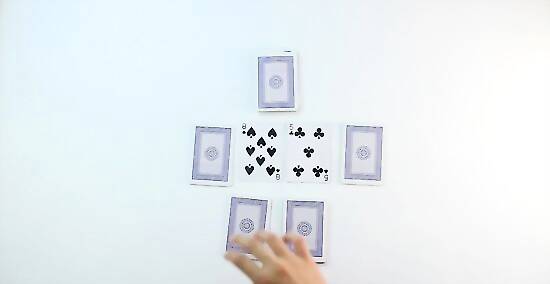
Pick up your 5-card hand. Survey your 5 cards to determine if any can be played on either of the active middle cards that you just flipped over. Play a card if it is in sequential order from one of the middle cards, in either ascending or descending order, regardless of suit. For example, if one of the middle cards is a 5, you can play a 4 or a 6 from your hand on top of it. The order of cards is 2 3 4 5 6 7 8 9 10 J Q K A. The order continues in a circuit, so if there is an Ace on a middle pile, you can play a King or a 2 from your hand on top of the pile. Don’t let your opponent see the cards in your hand.
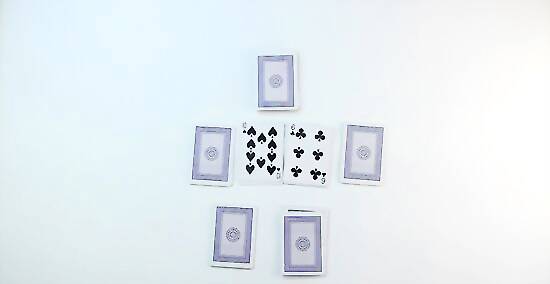
Lay down cards as quickly as possible. Keep laying down cards from your hand in ascending or descending order from the top cards on either of the middle piles. You and your opponent lay down cards as quickly as possible. There are no turns, so both players continue to lay down cards as fast as they can. You can play as many cards in a row as you want without waiting for the other player to lay down anything. Draw a card from your draw pile of 15 cards every time you lay down a card from your hand, so that you have 5 cards in your playing hand at all times. After you run out of cards in your draw pile, continue to play out all 5 cards in your playing hand to win.
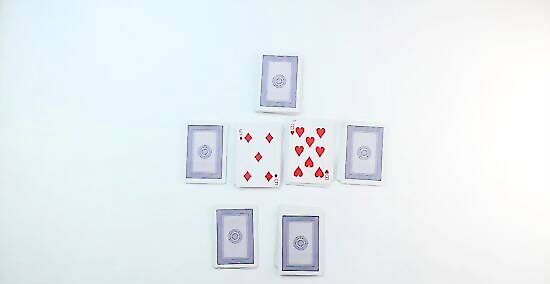
Flip over reserves when no one can play. If neither player can lay down a card from their hand on either of the top cards in the middle, flip over a card from the far left or right 5-card reserve piles at the same time as your opponent. Place these cards on top of the piles in the middle and resume play from your hand. Repeat this process any time game play halts due to neither player being able to lay down a card. If you run out of your left and right reserve piles, turn over the middle piles, shuffle them, and flip over the top card from each of them to resume play.
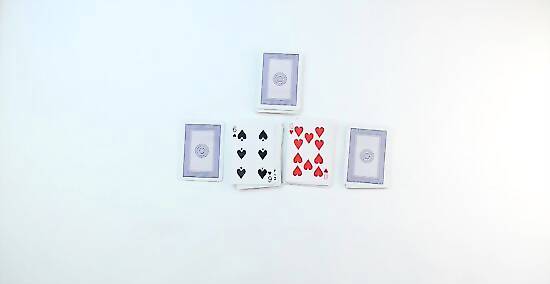
Yell “Speed” when all your cards are gone. Be the first to get rid of all of your cards, slam your hands down on the middle piles, and yell “Speed!” to be the winner of the game. Typically, Speed is played as a best-out-of-three game. The first player to win two games wins the set. But you can play for as many games as you like!
Adding Variations to the Game
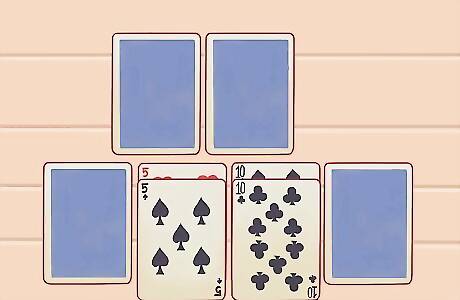
Play using doubles. Try modifying game play to allow players to play the same number card on one of the middle piles, in addition to playing ascending or descending cards. For example, you could play a 5 on another 5 card, or a 4 or 6 as in normal game play. Play this variation if you want to make the game easier or go by faster.
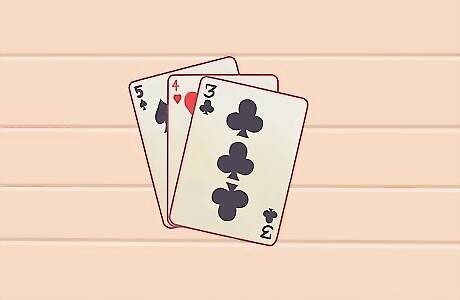
Put down more than one card at a time. Modify the game by agreeing with your opponent to be able to lay down more than one card at a time in ascending or descending order. For example, if you have a 3, 4, and 5 in your hand, you can wait until you see a 2 or a 6 on a middle pile and then lay down all three cards at once onto the pile. Play with this variation if you want to make the game go by faster or just want an extra way to “attack” or best your opponent by getting rid of cards more quickly.
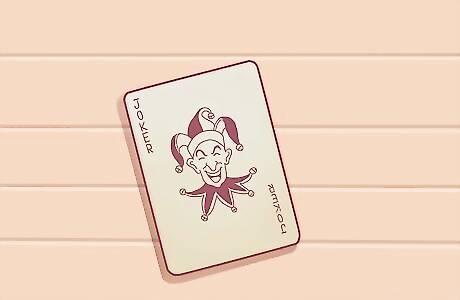
Use jokers as a wild card. Try including the two Joker cards into your deck before dealing. If you get a Joker in your playing hand, use it on top of any card in the middle pile to act as a “wild.” Play any other card in your hand on top of the wild Joker, and play resumes normally on that card. Try to hold onto a Joker in your hand as long as possible, only using it when you can’t play any of the other cards in your hand. A Joker must be played, however, when you can’t play any other cards and before you and your opponent can flip over reserve cards onto the middle piles. When you use Jokers in the deck, player draw piles should have 16 instead of 15 cards each. The Joker cannot be the last card you play to win the game.
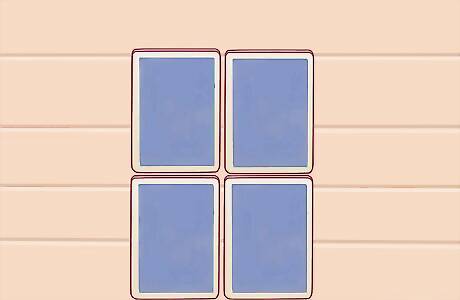
Play with three or four players. Expand the game to include more than two players by creating an extra middle pile for each player. In this case, deal out cards to the middle piles first, then distribute playing cards evenly to each player. Everyone should still have 5 cards in their playing hand. For three players, have three active middle piles for the players to lay cards on. For four players, have four active piles. Try using two decks instead of one when you're playing with more than two players for a longer game with more possibilities for game play.




















Comments
0 comment